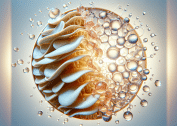In today’s constant-connectivity era, our minds are quietly overloaded. Unresolved thoughts, long to‑dos, and digital distractions collectively erode mental clarity and block focus. That’s why intentional mental clean‑up sessions lead to enhanced focus—they act like brain spring‑cleaning to reset attention, calm anxiety, and restore productivity.
This year’s emerging emphasis on mental health productivity combines tech minimalism, mindful resets, and digital decluttering to restore bandwidth. Below, you’ll find the science behind the concept and a practical guide to conducting your own mental clean-up sessions.

The Science of Mental Clarity and Focus
Cluttered Minds Mirror Cluttered Spaces
Just as physical clutter burdens perception, mental clutter overloads working memory. Research shows that disorganized environments tax our ability to filter distractions, making it harder to concentrate . A Harvard-affiliated study concludes that clearing external clutter liberates mental energy.
Brain Fog and Cognitive Load
Excess mental load—like unresolved decisions or emotional baggage—slows our brain’s processing. Cognitive Load Theory, originally modeled in industrial tasks, applies mentally too: simplifying tasks and thoughts reduces overload and supports optimal focus.
Mindfulness as Mental Maintenance
Mindfulness practice is strongly supported for reducing rumination, enhancing emotional regulation, and improving working memory. Participants in MBSR (Mindfulness-Based Stress Reduction) studies show lower stress and stronger mental clarity.
Emerging Trend: Mental Clean‑Up Sessions in 2025
Digital Minimalism as Mental Detox
As digital minimalism grows, people now schedule periodic mental reset sessions—closing apps, silencing notifications, reviewing notes—so they can declutter internal chatter and relieve cognitive strain ⁶.
Analog Second-Brain Cleanups
Users of tools like Notion or Roam are now conducting “Second Brain” clean‑up sessions—regular quarterly reviews to delete irrelevant notes and cluster ideas. This relieves digital mental weight and enhances recall.
Corporate “Focus Fridays” and Mind Clear Time
Forward-thinking workplaces now block out weekly mental reset windows—“Focus Fridays” without meetings or email—to help teams clear mental load and restore creative capacity. Productivity and morale show notable increases.
Guide: How to Conduct a Mental Clean‑Up Session
1: Schedule a Clear Time Block
- Block 30 to 60 minutes on your calendar titled Mental Clean‑Up.
- Do this weekly or at the end of each major project day when mental residue accumulates.
2: Externalize Thoughts
- Write down all pending thoughts, tasks, worries, ideas.
- Use bullet lists or digital note apps. This method frees your brain from juggling incomplete mental threads.
3: Categorize and Process
- Label each item: Action, Archive, Delete, Delegate.
- Decide immediately on next steps: delete tasks that aren’t aligned, delegate low-priority items. This reduces decision fatigue and supports executive clarity.
4: Quick Physical or Digital Declutter
- Delete unused files, uninstall rarely used apps, clear desktop icons.
- For physical clutter at your workspace, spend 5 minutes straightening; research shows tangible clarity follows external ordering.
5: Incorporate Mindfulness or Breathwork
- Spend 5 minutes doing a mindfulness meditation or “box breathing.” This helps transition your brain into a calm, receptive state
6: Set Intention for Focus
- Write one clear intention: “Today I will finish X project,” or “I will limit checking email twice.”
- This anchors attention for the next work phase and reduces mental noise.
What You’ll Gain from Mental Clean‑Ups
Sharper Focus and Productivity
Once mental residuals are cleared, attention refocuses. You’ll find fewer distractions during complex tasks and better flow states .
Reduced Stress and Anxiety
Studies indicate that physical and mental decluttering reduces cortisol levels, helps emotional regulation, and alleviates background tension .
Improved Decision Quality
With fewer unresolved threads competing for attention, decisions become clearer and faster. Cognitive clarity supports better choices throughout your day.
Mental Space for Creativity
Clearing mind clutter opens capacity for insight—people often report novel ideas or problem-solving breakthroughs after clean‑up sessions .
Real-World Examples
- A knowledge-worker at a tech firm adopted weekly mental clean‑up and saw error rates decrease by 20% and stress survey scores drop significantly .
- Notion and Roam users report enhanced clarity and fewer decision hold‑ups after quarterly second‑brain decluttering .
- Wellness-oriented co‑working spaces now host guided mental clean‑up workshops combining journaling, breathing, and planning .
Common Challenges and How to Overcome Them
- Resistance to writing thoughts down: Start with prompts like “what’s distracting me?” or “what’s unresolved?”
- Avoiding overwhelm in session: Limit processing to 3 categories—action, archive, delete—to simplify decision-making.
- Maintaining habit consistency: Pair mental clean‑up with weekly calendar events or end‑of‑day wrap‑up rituals.
Conclusion
Mental clean‑up sessions are more than a productivity hack—they’re a mindset shift. By clearing mental clutter weekly, you reclaim focus, reduce stress, and sharpen decision-making. These sessions help your brain shift from background multitasking to deliberate clarity.
In a time of persistent stimuli, mental clean‑up sessions lead to enhanced focus by restoring internal order and preparing attention for high-value work. Start small: journal, delete, breathe, intend. With consistency, mental clarity becomes the default, and focus becomes a choice—not a battle.
References
- Psychology Today. The many mental benefits of decluttering. https://www.psychologytoday.com/us/blog/the-resilient-brain/202302/the-many-mental-benefits-of-decluttering?utm_source=chatgpt.com
- Nuvance Health. How clutter affects brain health and focus. https://www.nuvancehealth.org/health-tips-and-news/how-clutter-affects-your-brain-health?utm_source=chatgpt.com
- Nature Scientific Reports. Visual vs code-based instruction increases cognitive load.https://www.nature.com/articles/s41598-025-95942-7?utm_source=chatgpt.com









